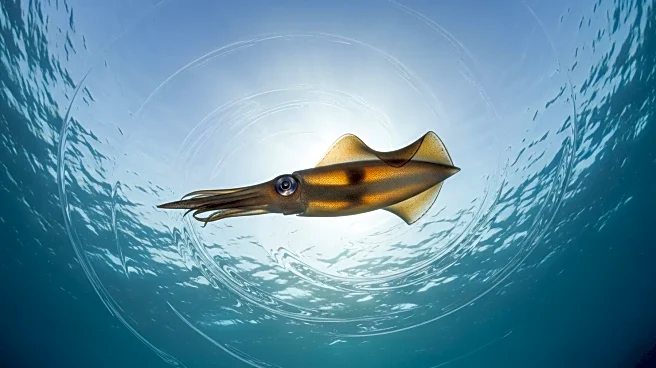What's Happening?
A study has examined the habitat variability of the squid species Sthenoteuthis oualaniensis in the northwestern Indian Ocean in response to El Niño and La Niña events. Using data from fishing logbooks and oceanic environmental datasets, researchers analyzed the catch per unit effort (CPUE) and habitat suitability indices (HSI) over several years. The study found that subtle environmental cues, rather than large seasonal fluctuations, drive habitat selection for this species. The research highlights the importance of fine-scale habitat selection within constrained ranges of sea surface temperature and chlorophyll-a concentrations.
Why It's Important?
Understanding the habitat variability of Sthenoteuthis oualaniensis is crucial for sustainable fisheries management and conservation efforts. The study's findings can inform strategies to mitigate the impacts of climate variability on marine species. By identifying key environmental factors influencing squid distribution, stakeholders can better predict and manage fishing efforts, ensuring the long-term viability of squid populations and the economic stability of fisheries dependent on them.
What's Next?
The study suggests further research into the impacts of ENSO events on marine species distribution and habitat suitability. Future investigations may focus on developing predictive models to anticipate changes in squid populations and optimize fishing practices. Collaboration between researchers and fisheries could lead to improved management policies that account for climate variability and its effects on marine ecosystems.
Beyond the Headlines
The study underscores the complex interactions between climate events and marine life, highlighting the need for comprehensive environmental monitoring. It raises ethical considerations regarding the exploitation of marine resources and the responsibility to protect vulnerable species from climate-induced habitat changes.











